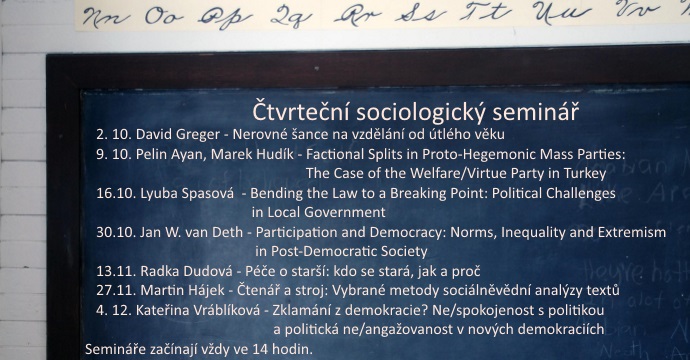
PRESENTERS:
Pelin Ayan Musil, PhD (Department of Politics, Anglo-American University)
Marek Hudik, PhD (Center for Theoretical Studies, Charles University)
What leads to factional split in proto-hegemonic mass parties characterized by ultra-nationalism, socialism or religious fundamentalism? In our study, we show that in such parties the struggle of the opposition factions against the party leader’s policies resembles the struggle of the opposition forces in authoritarian regimes. We build a game-theoretic model of factional split borrowing from the collective action theory used in revolution studies: The collective action problem, together with the fact that the party leader possesses an extensive control over the party organization, makes the replacement of the party leader with the opposition’s candidate unlikely. We argue that it is *incomplete power transformation* that typically results in factional split in these parties: The opposition succeeds in accumulating some power vis-à-vis the party leader but this amount of power is insufficient for the leadership turnover to occur. On the other hand, it may be sufficient to establish the organizational and electoral basis of a new party. We apply our model to the split of the Justice and Development Party (AKP) from the religious fundamentalist Welfare/Virtue Party (RP/VP) in 2001 in Turkey.